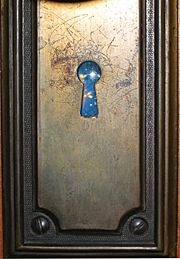BIRD & FOREST
Brent Cunningham Ugly Duckling Presse ($10) by Amanda Nadelberg As magical and lovely on the inside as its wonderful 1970's kitchen-green cover suggests, Brent Cunningham's Bird

Brent Cunningham Ugly Duckling Presse ($10) by Amanda Nadelberg As magical and lovely on the inside as its wonderful 1970's kitchen-green cover suggests, Brent Cunningham's Bird
Heather Nagami Chax Press ($15) by Kenny Tanemura Heather Nagami's debut, Hostile, is an anomaly among first books by an Asian American poet, or any young
Major Jackson W.W. Norton & Company ($23.95) by Lynnell Edwards I read Major Jackson's new book Hoops in the week between the end of the AWP conference
By Kevin Kilroy A transmutation of the boundaries between poetics and prose seems to be occurring, and Mary Burger's various work demonstrates how this activity
By Thomas Devaney Sparrow is a poet and prose provocateur best known as a folk hero and poet-journalist in New York City's East Village and

Brent Cunningham, Mary Burger, Sparrow, and more... INTERVIEWS We Live in a Country with Maybe the Most Delicious Looking Flag of Any Nation: An Interview